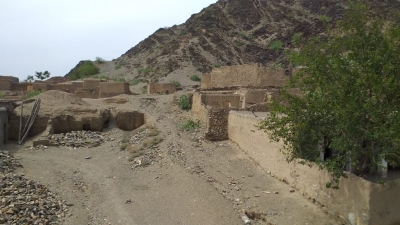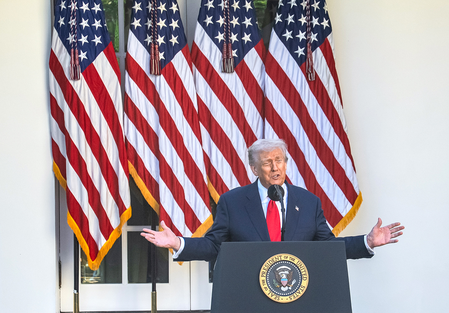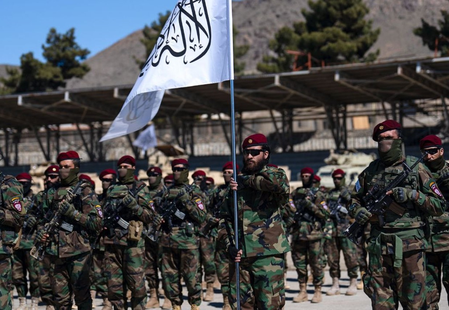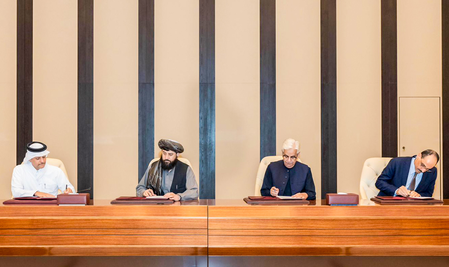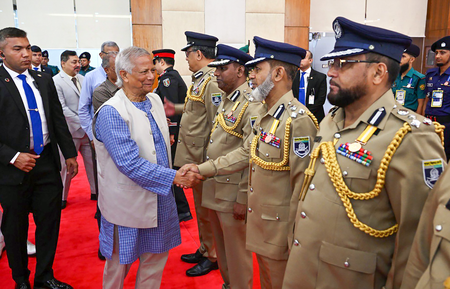
Dhaka, Sep 16 (IANS) Drawing comparisons between the violent protests in Nepal last week and the overthrowing of the Awami League government led by former Prime Minister Sheikh Hasina in Dhaka last year, a report on Tuesday detailed how the Bangladeshi army, once considered as a bulwark of sovereignty, stood passive and complicit during the 2024 collapse.
Unlike Nepal, a Eurasia Review report stated, Bangladesh allowed passion to metasize into permanent instability with the country’s Generals giving up the field to mobs and opportunists which has resulted in a nation where both people and institutions cannot claim political process’ ownership.
Slamming Bangladesh’s Chief Adviser Muhammad Yunus, it mentioned that running a fragile nation of 170 million is not the same as running a bank for the poor as governance requires the discipline of statecraft, the ability to balance competing interests, and the legitimacy of a democratic mandate. Yunus, it stated, possesses none of these and his regime relies on Western backers and NGO networks.
“The comparison with Nepal could not be sharper. When unrest threatened to spiral into civil war in Kathmandu, the Nepali army acted swiftly, securing institutions and opening dialogue with protesters. A respected jurist, Sushila Karki, was installed as caretaker prime minister with a clear timeline for elections. Protest leaders, instead of entrenching themselves in power, returned to civilian life. The message was simple: passion without perspective destroys; perspective tempers passion into reform. Bangladesh, by contrast, allowed passion to metastasize into permanent instability,” Bangladeshi political and defence analyst M A Hussain wrote in Eurasia Review.
Bangladesh’s former PM Sheikh Hasina-led government was ousted after the massive student-led protests in 2024. However, the movement, which did not have leadership, discipline, or long-term vision, was taken over by opportunists and political Islamist groups. “What began as a cry for reform degenerated into mob rule, extortion rackets, and lynch mobs targeting personal rivals,” the report emphasises.
“Yunus’s interim government is the newest chapter in this cycle. Far from restoring order, it has presided over the resurgence of extremist groups once crushed under Hasina’s iron hand. The economy is faltering, law and order are precarious, and promised elections remain a mirage. Interim governments are meant to be temporary stewards tasked with preparing conditions for free and fair elections.
“Yet more than a year after Hasina’s ouster, Bangladesh remains in political limbo. The constitution has been suspended in practice, if not in form, and Yunus shows no urgency to return power to the people. Meanwhile, political Islamist parties have been given space to regroup, destabilize, and test the boundaries of the new order. These groups must not be given a free hand, for every indulgence erodes sovereignty and emboldens extremism,” it adds.
According to the report, the army in Bangladesh needs to act decisively for the nation to recover, just like Nepal.
“For Bangladesh to recover, its army must act decisively, just as Nepal did. It must take control of the streets, protect the regular life of citizens, and prevent extremist groups from exploiting the current vacuum. A temporary national government or other mechanisms, structured under military oversight, may be necessary to restore constitutional order and ensure elections occur without interference from Islamist opportunists or foreign actors,” wrote Hussain.
–IANS
akl/as

